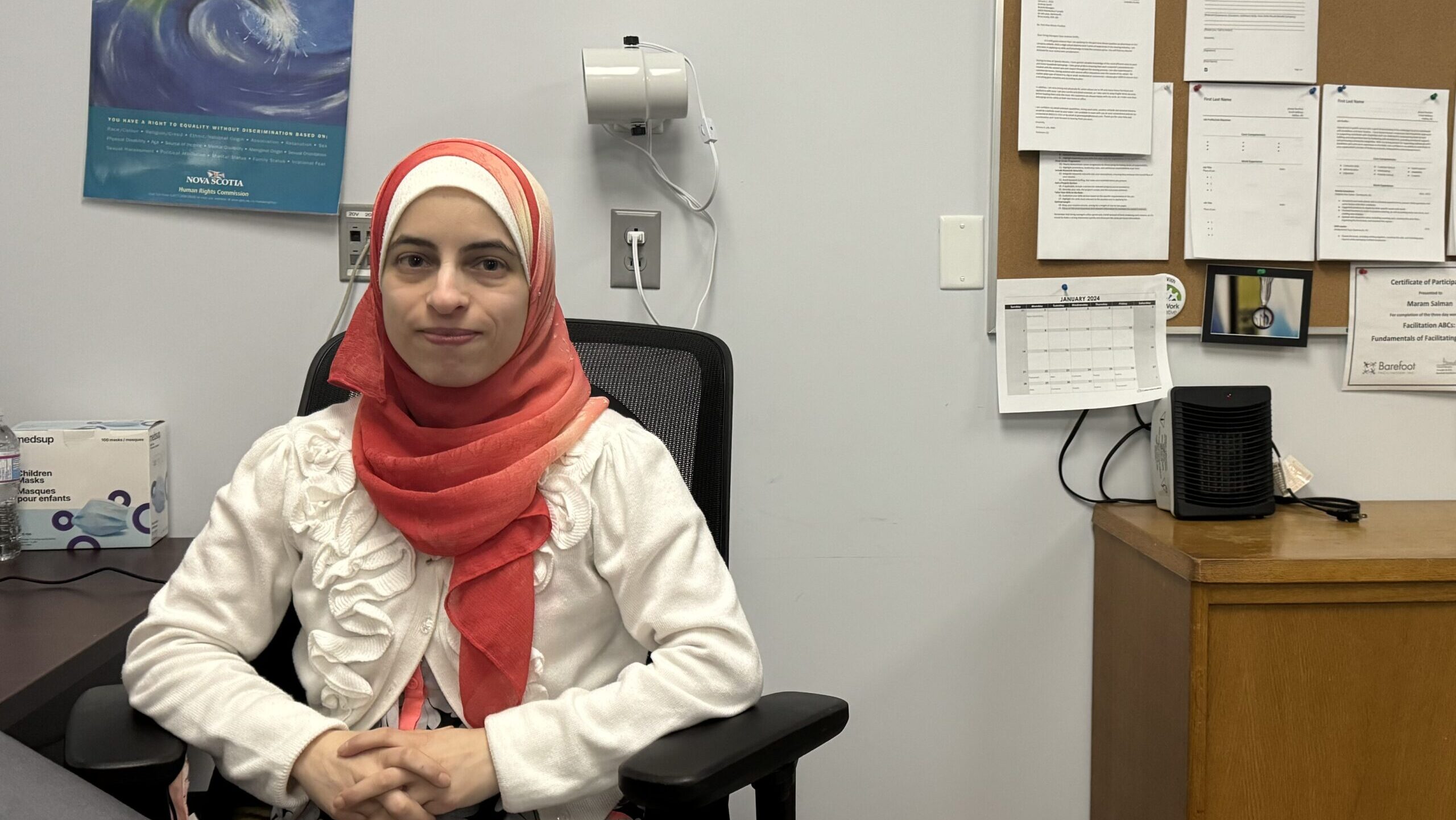To tell or not to tell: the disability disclosure dilemma
Choosing to tell a potential employer about a disability can be nerve-wracking

caption
Maram Salman leads workshops on employment issues in Halifax.Maram Salman frequently hears the dilemma many disabled people encounter when trying to decide whether to disclose their disability to employers.
“I think one of the biggest stereotypes is that the candidate is unable to do the job, where most of the time it’s the complete opposite,” she said.
Salman is a workshop facilitator at TEAM Work Cooperative, an organization that offers free career counselling to Nova Scotians. She said disabled people worry they will not be taken seriously and will be discriminated against.
Salman discussed the realities that come with disclosing a disability at a workshop she hosted in her office last week.
The Canadian Human Rights Act protects Canadians from discrimination when they are employed by the federal government, First Nations governments and private companies that are regulated by the federal government. This includes banks, trucking companies, broadcasters and telecommunications companies. The act prohibits discrimination upon 11 grounds, which includes physical and mental disability.
But in 2022, median hourly wages for employees who identify as persons with disabilities, were 5.5 per cent less than the general population, according to Statistics Canada.
The 2022 Canadian Survey on Disability (CSD) also found that 8 million Canadians 15 and older have one or more disabilities that affect them in their daily life.
When Salman discussed the contemplation that several face when deciding whether or not to disclose a disability, she encouraged attendees to ask themselves questions. Those include: how do most people react when they learn about your disability? Does not disclosing that disability put your safety or the safety of others at risk?
In an interview after the workshop, Salman said the hesitation to address a disability often comes from not knowing how or when to bring it up.
Be specific
When disclosing, she advocates for specificity. Naming the disability is the first step but describing how it affects someone’s capacity to work – and what potential accommodations are needed, is equally important.
Karen Paquette said she attended last week’s workshop because her attention deficit hyperactivity disorder (ADHD) has recently taken on a bigger role in her life since being in menopause.
“It is not something that I feel is good for me to hide anymore,” she said. “I think it’s just better for me and the employer that I disclose it. So I wanted to know how to do that and what were the consequences of doing that.”
She said initiating this conversation with an employer requires openness.
“I think that starts a lot with being vulnerable and being able to say, ‘OK, I’m going to put myself out there, I’m going to say that, yeah, this is my disability.’ ”
But Paquette, who works with children, said her ADHD is also a source of empowerment. She said it allows her to relate with kids more easily.
“For every disability, there’s always a strength,” she added.
Vicky Levack is the spokesperson for the Disability Rights Coalition of Nova Scotia. Levack said she is against disclosure and instead opts for only indicating the accommodations someone needs.
“The person in question, whoever it is, wouldn’t have the job if they couldn’t do it,” she said.
Levack said examining a company’s policies on inclusive hiring and finding out which causes they support can help an applicant gauge whether or not they will be accommodated properly.
Salman said some employers are starting to change, but it’s just the beginning.
“We still have a long way to go in terms of getting to a place where people with disabilities are not discriminated against, and they’re considered for hire just as well as anyone else,” she said.
According to Salman, it starts with more education.
“Educating companies, educating organizations that disabilities are going to exist, people are going to have disabilities, it’s not going to go away,” she said.
“It’s OK to talk about them, it shouldn’t be a subject that should be brushed underneath the rug.”
About the author
Raeesa Alibhai
Originally from Toronto, Raeesa Alibhai is in her fourth-year of the Bachelor of Journalism (Honours) Program at King's. She is fond of all forms...
